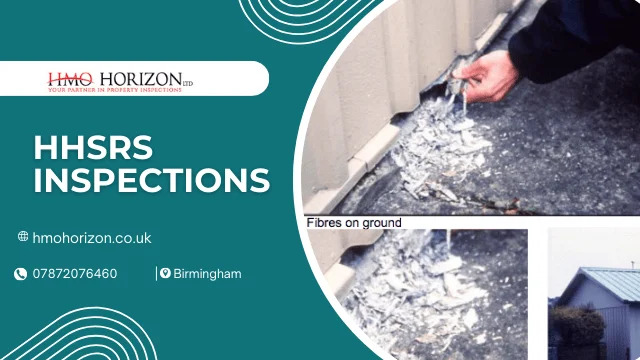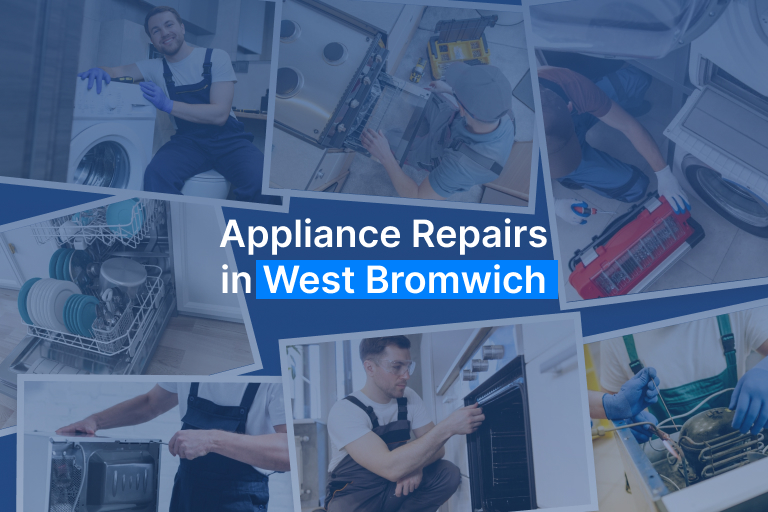As a landlord in the UK and renting property, the law requires you to provide a property that is legally acceptable in terms of safety and fitness for human habitation. In this respect, one of the largest responsibilities is to undertake what is known as the HHSRS Inspection. It’s a legal requirement, but do you know what it is and why it is so important? In the information below, we will explain very simply what it is and what you need to understand, whether you are a landlord or tenant, as to what is involved and why it is vital.

Understanding HHSRS: The Basics
HHSRS is short for Housing Health and Safety Rating System. This is a system used by councils across the UK to determine whether there are risks to health and safety arising from a rented property. These inspections can be completed in private rented dwellings and Houses in Multiple Occupation (HMOs), however, they are applicable to all residential housing.
The goal of the inspection is to highlight potential hazards, for example, damp and mould, faulty electricals or even just poor lighting or trip hazards. Should there be problems within the property that may, or are likely to cause harm to the residents, then the council may ask the landlord to complete repairs.
Why Is an HHSRS Inspection Needed?
In simple terms, an HHSRS inspection helps make sure that tenants live in homes that are safe, healthy, and free from danger. Landlords who ignore these inspections or fail to carry out the recommended improvements may face legal action, fines, or be banned from letting properties altogether.
It’s not just about ticking boxes. This system helps protect families, vulnerable individuals, and students from being stuck in poor living conditions. It’s also a way to hold landlords accountable and ensure housing standards are kept high across the UK.
Who Carries Out an HHSRS Inspection?
Inspections conducted under the HHSRS are carried out by local authority officers, usually Environmental Health Officers. If a tenant reports a problem concerning the state of their home or the council receives a complaint, an inspector may visit the property.
During the inspection, the officer checks the entire home, including any communal areas if it is an HMO. The officer evaluates and assesses the severity of the risk to the tenant based on the likelihood of occurrence and the seriousness of the outcome. The HHSRS identifies 29 different types of hazards, for instance damp and mould, overcrowding, and fire safety.
What Happens After the Inspection?
If there are serious hazards identified by the inspector, the council can provide the landlord with a formal notice. This may be an improvement notice requiring the landlord to correct the problem within a certain time period. In more serious matters, the council may issue a prohibition order and restrict the use of a section or the entire property until it has been made safe.
Landlords have a legal obligation to respond to the formal notices. If the landlord does not take action to fix the problem, it is likely they will be fined, or there will be further enforcement actions. Therefore, many landlords will choose to get ahead of the game by conducting their own property inspection and safety checks in advance.
How HMO Horizon Can Help
At HMO Horizon, we understand that keeping your property up to standard isn’t just a legal requirement – it’s also the right thing to do. Whether you’re a first-time landlord or you manage multiple properties, it can be tough to stay on top of all the regulations.
That’s where we come in. We provide trusted property inspection services, including electrical inspection certificates, gas safety checks, and general compliance support to ensure your property is safe and legal before any issues arise. You can visit our Electrical Inspection Certificate page to see how we help landlords meet their responsibilities with ease.
We know what inspectors look for, and we work closely with property owners across the UK to make sure homes are fully compliant with the Housing Health and Safety Rating System.
Common Hazards Found in HHSRS Inspections
While each property is different, some problems show up time and time again. These might include things like broken or faulty wiring, old heating systems that don’t work properly, and poorly maintained kitchens or bathrooms. Another frequent issue is damp and mould, which can lead to serious health problems if not addressed.
Overcrowding, poor ventilation, lack of smoke alarms, and slippery floors are also typical hazards. Fixing these problems not only helps you pass an HHSRS inspection but also shows your tenants that you take their safety seriously.
Why HHSRS Inspections Are Especially Important for HMOs
If you are a landlord of an HMO, you will already be aware of the particular requirements for standards related to your property. An HMO is a house in multiple occupation, with each tenant assigned a separate room, but sharing communal areas like kitchens and bathrooms. With more people living in one property, the greater the number of hazards.
Under the Housing Health and Safety Rating System (HHSRS), an HMO will take decisive action in hand with regards to serious risk basis. This is why the features of a service such as HMO Horizons is tailored to the unique requirements based on shared housing needs. We close the gap to ensure you understand what is required and help you get organised ahead of a formal inspection.
Preparing for an HHSRS Inspection
The best way to prepare for an HHSRS inspection is to treat your property as if a family member were going to live there. Would you feel safe? Is everything working as it should? Are there any signs of damage, damp, or disrepair?
Routine checks, scheduled safety inspections, and keeping clear records are good practices. Our team at HMO Horizon can help you with regular assessments to ensure there are no hidden issues that could turn into costly repairs down the line.
In the UK, an HHSRS assessment is an essential process in ensuring the safe and compliance of rental properties. Whether you’re renting a flat, a house, or an HMO, ensuring your property is free of hazards is not only a legal requirement but also a moral responsibility to your tenants. At HMO Horizon, we strive to simplify compliance. From electrical testing to property inspections, we enable landlords across the UK to feel confident that they have met their obligations. If you are unsure about where to begin, please contact us and we will guide you in the right direction.


